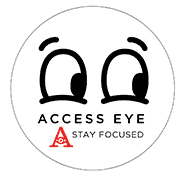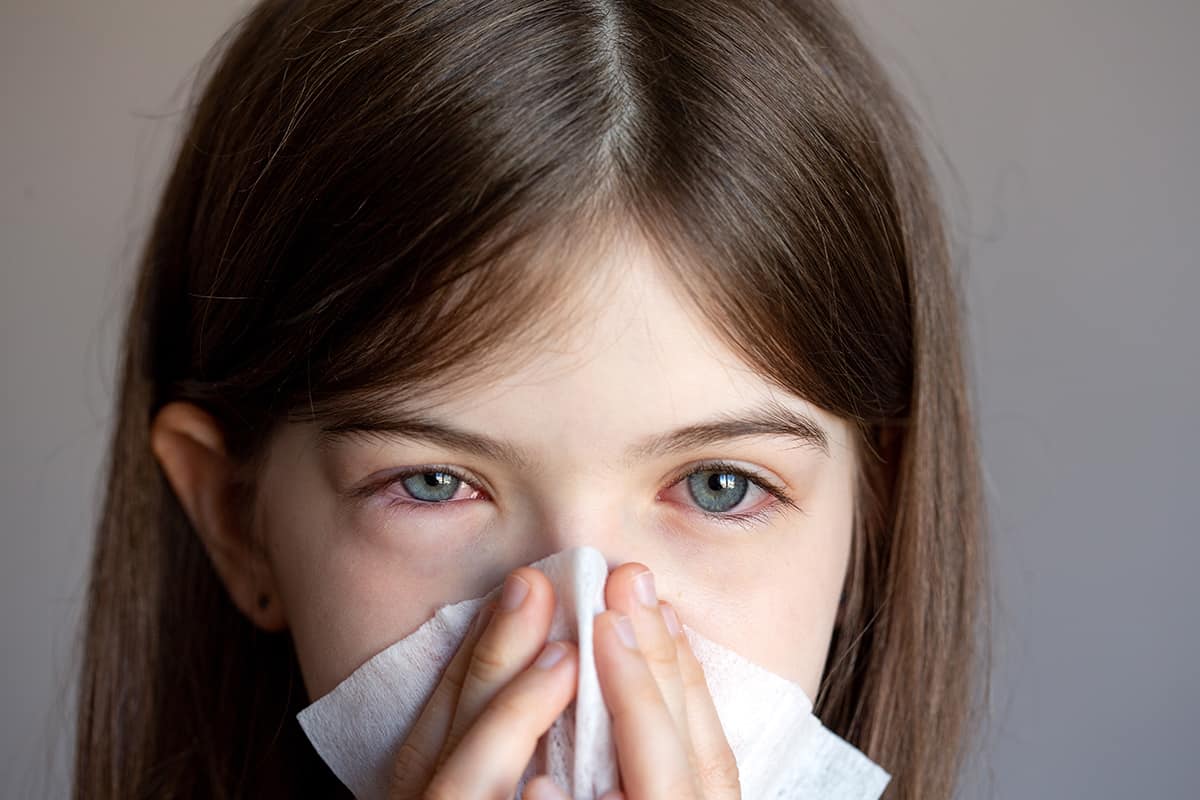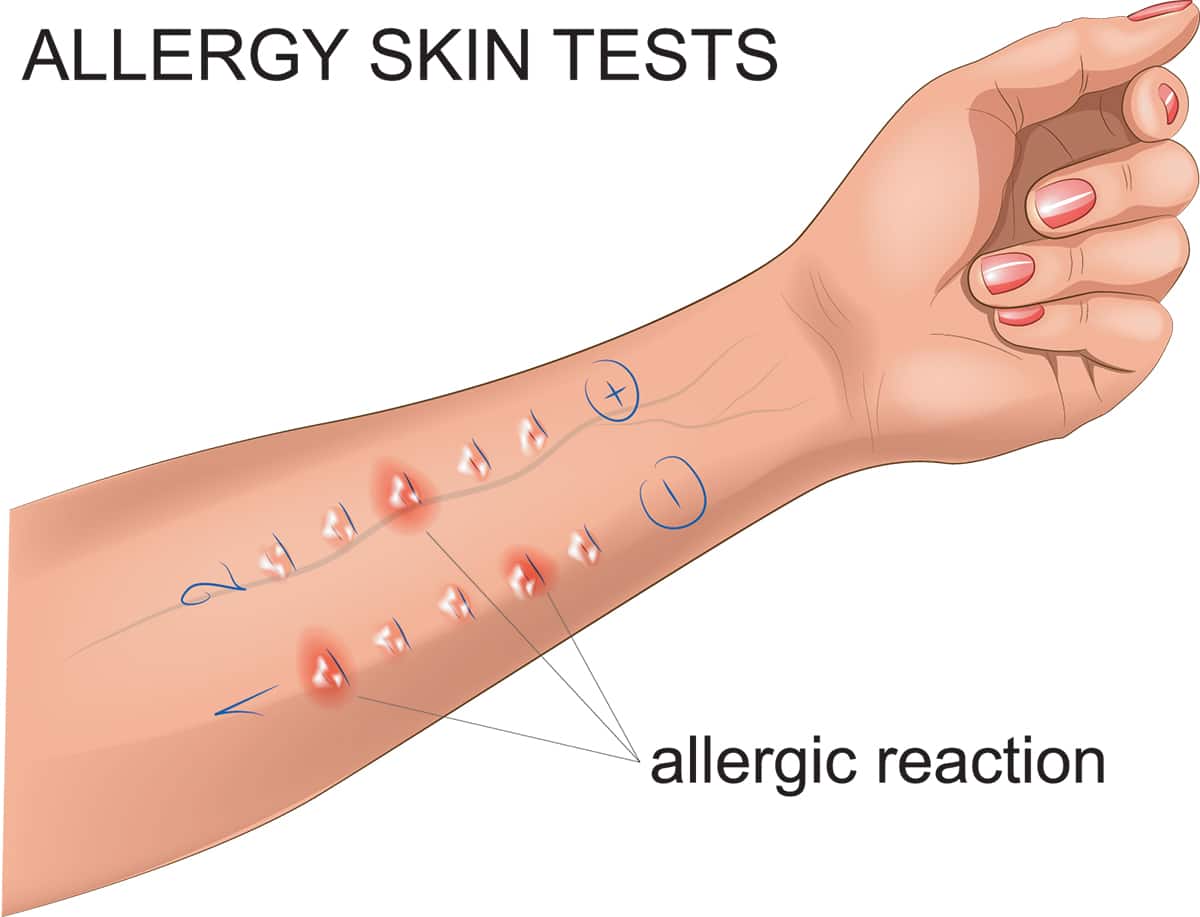Allergies usually affect both eyes. It is unusual for an allergen to get into one eye but not the other, though it can happen on rare occasion.
Allergy Testing
in Fredericksburg, VA
Itchy, runny, red eyes are another common reason why patients seek help from Access Eye. While these eye irritations can have many potential causes, during allergy season allergic conditions affecting the eye are often the culprit — especially in this geographic area. It is important that the root cause of the problem be investigated early on.

What to Expect With Allergy Testing in Spotsylvania, VA
We employ a very simple, quick, virtually painless skin scratch test (no needles are used) that evaluates for allergic reactions against many very common allergens in this region.
To begin the test, your arm will be cleaned to remove any germs or irritants. Then, we will press a device similar to a plastic hair comb into the skin of your arm. The device contains tiny amounts of the specific allergens for which you are being tested. The device makes small scratches on your arm to allow the allergens to get under your skin. This does not hurt. The spots that were scratched may be marked to help us identify those sites later.
You will be asked to wait in the office for 15 to 20 minutes and avoid touching or scratching your arm. Then, we will check your arm for reactions (e.g., redness, itching and swelling) in the areas where the allergens touched your skin. We will mark down which allergens produced a reaction. Once we have identified those allergens, we will apply a soothing cream to your skin to alleviate redness, swelling and itching.
IMPROVING LIVES
THROUGH BETTER VISION
Allergy Testing Results
The results not only help us manage the eye condition, they also can provide useful information for other health care professionals involved in your care.
The allergy testing results sometimes rule OUT allergies as a source of the symptoms, directing our search to different areas. Alternatively, if the results indicate you are allergic to only a few things, you can reduce your symptoms by avoiding them. If you experience multiple positive reactions to the allergy testing, you may be treated with systemic or local (eye drop) medications. We may advise you to consult with an allergist. A number of other recourses and treatments may also be applied.

Benefits of Allergy Testing for Eye Health
Allergy testing helps us identify or rule out the cause of your painful symptoms so our eye doctors can determine the right treatment plan and advise you on eliminating or decreasing exposure to the allergen. These tests can indicate the severity of your eye allergy, which may require more aggressive treatment with injections instead of topical or oral medications.
Patients may be misdiagnosed with a similar eye condition without allergy testing because the symptoms overlap with dry eye disease and blepharitis. Eye allergies and dry eyes can coexist, with one exacerbating the other, which is why diagnosis is crucial for symptom relief.
Allergy testing helps us provide better eye care and improve your symptoms with the correct diagnosis and customized treatment plan.
Causes of Eye Allergies
Ocular allergies involve conditions that affect the eyelid and conjunctiva (the transparent mucous membrane that coats the inside of the eyelids and covers the front eye surface). Seasonal and perennial allergic conjunctivitis are the most common issues and involve seasonal or year-round allergic reactions to environmental causes, such as pollen, pet dander, and mold. Contact blepharoconjunctivitis develops after continuous contact with the allergen and causes inflammation. Vernal and atopic keratoconjunctivitis are less common but may cause more severe, vision-threatening reactions.
Eye allergies are caused by outdoor allergens (pollen), indoor allergens (mites, pet dander, mold), or environmental irritants (smoke, perfume or cologne, and exhaust from diesel engines). The eyes may experience an allergic reaction if the allergen is rubbed into or around the eye, such as makeup or skincare products, or a topical agent, including over-the-counter eye drops. Some allergic reactions increase immunoglobulin E (Ige) in the blood, while others do not.
Eye Allergy Treatments
Our eye doctors may recommend managing symptoms by avoiding triggers in conjunction with non-prescription and/or prescription medications. Over-the-counter decongestant eyedrops, artificial tears, and oral antihistamines may work for people with mild to moderate eye allergies. More significant reactions may require prescribed antihistamine, decongestant, or steroidal eye drops and allergy shots.
FAQ
Is there anything I should do prior to allergy testing?


It is important that you avoid taking antihistamines for approximately five days prior to your allergy test. Antihistamines interfere with your allergic response and can throw off the results of your allergy test. Our team may give you a list of other medications to avoid in the days leading up to your test.
Is there anything I should do after allergy testing?


If you develop new swelling or bumps after your allergy tests, or your existing bumps get worse or do not disappear after two to three days, contact our office.
How much will allergy testing cost?


The amount you will pay for allergy testing depends on whether your health insurance offers coverage. Our office would be happy to answer your questions and provide our billing codes so you can check with your insurer about how much coverage they offer for allergy testing.
How long can eye allergies last?


It depends on what triggers the allergic reaction. Some allergies are seasonal (i.e., allergies to pollen from grasses or trees). Others last year-round (e.g., allergies to dust or pet dander).
Is an eye allergy curable?


Eye allergies cannot be cured, but allergy symptoms can be managed with medications and eyedrops. Another option is allergy shots to build up your body’s immunity to specific allergens.
Our team can review the available treatments with you during an in-person appointment. We can also discuss lifestyle changes to make to minimize or avoid exposure to allergy triggers.
Does rubbing your eyes damage them?


Rubbing your eyes too often or too hard is risky. It can irritate your eyes and make your allergies worse. It can also damage the tiny blood vessels of your eyes, aggravate conditions like glaucoma and possibly lead to problems such as keratoconus. Finally, rubbing your eyes can transmit germs that may cause an infection.
Are there other types of tests for eye allergies?


Access Eye offers the skin scratch test with AllerFocus. This FDA-approved diagnostic test has 80 panels covering allergens in our region.
The serum-specific Ige test takes a sample of your blood and measures the levels of Ige antibodies present in the blood after exposure to a single allergen. The higher the amount of lge antibodies, the more likely the body will have an allergic reaction. These tests are done with allergists and are often used to diagnose and manage food allergies. Serum-specific Ige may be necessary after a skin scratch test identifies one or more allergic reactions. A separate Ige test is done for each suspected allergen.
King George Office
7961 Kings Highway
King George, VA 22485
Phone: (540) 371-2020
Office Hours
Ophthalmology in King George, VA Hours
Mondays – 8:00am to 5:00pm
Tuesdays – 8:00am to 5:00pm
Wednesdays – 8:00am to 5:00pm
Thursdays – 8:00am to 5:00pm
Fridays – 8:00am to 5:00pm
Closed for lunch from 1:00pm to 2:00pm
Falmouth Office
110 Cambridge Street
Fredericksburg, VA 22405
(540) 371-2020
Office Hours
Ophthalmology in Falmouth, VA Hours
Monday – 8:00am to 5:00pm
Tuesday – 8:00am to 5:00pm
Wednesday – 8:00am to 5:00pm
Thursday – 8:00am to 5:00pm
Friday – 8:00am to 5:00pm
Route 3 Office
4516 Plank Road
Fredericksburg, VA 22407
(540) 371-2020
Office Hours
Ophthalmology in Fredericksburg, VA Hours
Monday – 8:00am to 5:00pm
Tuesday – 8:00am to 5:00pm
Wednesday – 8:00am to 5:00pm
Thursday – 8:00am to 5:00pm
Friday – 8:00am to 5:00pm
Parkway Office
4701 Spotsylvania Parkway
Suite 110
Fredericksburg, VA 22408
Office Hours
Ophthalmology in Spotsylvania, VA Hours
Mondays – 8:00am to 5:00pm
Tuesdays – 8:00am to 5:00pm
Wednesdays – 8:00am to 5:00pm
Thursdays – 8:00am to 5:00pm
Fridays – Temporarily Closed
Closed for lunch 1:00pm -2:00pm
Dedicated Laser Center
4516 Plank Rd
Fredericksburg, VA 22407
(540) 371-2020
Office Hours
Dedicated Laser Center Hours
Refer to hours listed for the Plank Road Location
Aquia Office
2761 Richmond Highway
Suite 205
Stafford VA, 22554
Office Hours
Ophthalmology in Stafford, VA Hours
Mondays – 8:00am to 5:00pm
Tuesdays – 8:00am to 5:00pm
Wednesdays – 8:00am to 5:00pm
Thursdays – 8:00am to 5:00pm
Fridays – 8:00am to 5:00pm
Closed for lunch 1:00pm -2:00pm




















